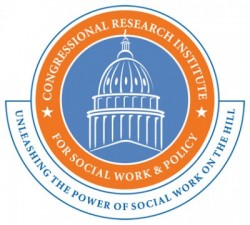We have work to do. President Barack Obama, in what may be his most eloquent and thoughtful speech, helped us to understand the profound place in history held by those who crossed the Edmund Pettus Bridge on B loody Sunday, March 7, 1965 in pursuit of social and economic justice. It was their encounter with the forces of bigotry and hate that helped change the course of history. It was the determination of the protesters to endure the most vile and despicable slurs imaginable, to withstand flailing police batons, ferocious dogs, and battering waves of water pouring from hoses, that moved the needle ever so slightly from oppression towards freedom. We are constantly reminded by injustice in Ferguson and other places that the battle is far from over. As the President stated, this is no time for cynicism, no time for complacency or despair. Many Americans of good will believe the social contract that the Framers had in mind was not one that favored a few who would reap a disproportionate share of the benefits of a society whose prosperity depends on the work of many.
loody Sunday, March 7, 1965 in pursuit of social and economic justice. It was their encounter with the forces of bigotry and hate that helped change the course of history. It was the determination of the protesters to endure the most vile and despicable slurs imaginable, to withstand flailing police batons, ferocious dogs, and battering waves of water pouring from hoses, that moved the needle ever so slightly from oppression towards freedom. We are constantly reminded by injustice in Ferguson and other places that the battle is far from over. As the President stated, this is no time for cynicism, no time for complacency or despair. Many Americans of good will believe the social contract that the Framers had in mind was not one that favored a few who would reap a disproportionate share of the benefits of a society whose prosperity depends on the work of many.

I came of age in the 1960s. It was a turbulent time—Vietnam, the assassinations of President John F. Kennedy, Jr., Medgar Evers, Malcolm X and Dr. Martin Luther King. There were riots, uprisings on college campuses, and, yes, black men were still being lynched. Yet through the turmoil there was always a sense of community—a belief that people were better off if we stuck together. We were told that we either swim together or drown alone. Events like Woodstock brought thousands of young “hippies” together for marathon sessions of the best that music can be. Not surprising, the 1960s was the heyday of community social work.
We hardly got into the next decade when another turning point arrived in a tragic day at Kent State University. It occurred one day before my 20th birthday on May 4, 1970—four unarmed students were shot dead by the National Guard and nine others wounded. The age of law and order had arrived with a vengeance. After all, it was the slogan that propelled Richard M. Nixon into the White House. He was soon to be followed by President Ronald Reagan and a new era of conservatism that swept the country. Community was too close to communism and socialism to be an acceptable form of lifestyle. It was the individual that was paramount. Robert Ringer’s Looking Out for Number One—the tome du jour—became a New York Times #1 bestseller. Supply-side economics heralded Ayn Rand’s great man theory. Unions and collective bargaining began to wilt from constant attacks from corporations and their Republican allies. We were all competing for the American Dream when we should have been working together to achieve it universally.

The President reminded us that the single most powerful word in our vocabulary must be we. We can get a lot more done than me. At the risk of sounding like Rodney King, it is time that we put aside our differences and begin to look for common solutions to major problems. I am encouraged by what I am seeing in young social workers coming together to create the forum on the Social Work Reinvestment Act (SWRA) in the Members Room in the Jefferson Building of the Library of Congress at 11:00 a.m. on Tuesday, March 17th which has been declared Social Work Day on the Hill. I am inspired by the leadership of Shauntia White, a young MSW student at the National Catholic School of Social Service and the scores of students who are rallying around the SWRA. They are coming from as far as Kentucky and southern California.
The commemoration of the historical Bloody Sunday in Selma, Alabama is cause for neither celebration nor despair. It should, however, energize us to go the extra mile—as the old folks used to say—to see what the end’s going to be. We must believe that things can get better. We must believe that we can have a more egalitarian society. Economic inequality reaches a point where it becomes evil because it robs so many children of their chance for a meaningful future. The only weapon we have to fight this injustice is political power. We must use it or lose what little hope we have today of achieving some measure of social and economic fairness.
Written By Charles E. Lewis Jr., Ph.D
Back to Selma, then Back to Work was originally published @ Congressional Research Institute for Social Work and Policy » Charles Lewis and has been syndicated with permission.
Sources:
Our authors want to hear from you! Click to leave a comment
Related Posts





